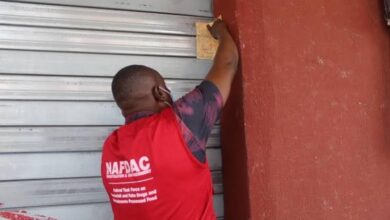Childhood Immunisation Begins Recovery After Covid-19 Relapse

New data released by the World Health Organisation (WHO) and United Nations Children’s Fund (UNICEF) has shown that childhood immunisation has improved since the decline due to Covid-19 restrictions.
A statement issued by the duo on Tuesday, July 18, 2023, disclosed that, 20.5 million children missed out on one or more vaccines delivered through routine immunisation services in 2022 compared to 24.4 million children in 2021.
Nonetheless, the statement said, “in spite of this improvement, the number remains higher than the 18.4 million children who missed out in 2019 before pandemic-related disruptions, underscoring the need for ongoing catch-up, recovery, and system-strengthening efforts”.
It informed that the vaccine against diphtheria, tetanus, and pertussis (DTP) was used as the global marker for immunisation coverage.
Going further, the statement added that, of the 20.5 million children who missed out on one or more doses of their DTP vaccines in 2022, 14.3 million did not receive a single dose, so-called zero-dose children. The figure represented an improvement from the 18.1 million zero-dose children in 2021 but remained higher than the 12.9 million children in 2019.
“These data are encouraging, and a tribute to those who have worked so hard to restore life-saving immunization services after two years of sustained decline in immunization coverage, but global and regional averages don’t tell the whole story and mask severe and persistent inequities. When countries and regions lag, children pay the price”, said Dr. Tedros Adhanom Ghebreyesus, WHO Director-General.
WHO and UNICEF further disclosed that the early stages of recovery in global immunisation have not occurred equally, with the improvement concentrated in a few countries. They noticed that progress in well-resourced countries with large infant populations, such as India and Indonesia, masks slower recovery or even continued declines in most low-income countries, especially for measles vaccination.
They also said, of the 73 countries that recorded substantial declines in coverage during the pandemic, 15 recovered to pre-pandemic levels, 24 were on route to recovery and, most concerningly, 34 had stagnated or continued declining.
They noted that these concerning trends echo patterns seen in other health metrics and therefore, called on countries to ensure they are accelerating catch-up, recovery, and strengthening efforts, to reach every child with the vaccines they need – because routine immunization is a fundamental pillar of primary healthcare – take the opportunity to make progress in other, related health sectors.
According to data from the two organisations, vaccination against measles – one of the most infectious pathogens – has not recovered as well as other vaccines, putting an additional 35.2 million children at risk of measles infection:
“First-dose measles coverage increased to 83 percent in 2022 from 81 percent in 2021 but remained lower than the 86 percent achieved in 2019. As a result, last year, 21.9 million children missed the routine measles vaccination in their first year of life – 2.7 million more than in 2019 – while an additional 13.3 million did not receive their second dose, placing children in under-vaccinated communities at risk of outbreaks”, the data revealed.
On her part, UNICEF Executive Director Catherine Russell warned that, unless more countries mend the gaps in routine immunisation coverage, children everywhere will remain at risk of contracting and dying from preventable:
“Beneath the positive trend lies a grave warning, until more countries mend the gaps in routine immunization coverage, children everywhere will remain at risk of contracting and dying from diseases we can prevent.
“Viruses like measles do not recognize borders. Efforts must urgently be strengthened to catch up with children who missed their vaccination while restoring and further improving immunization services from pre-pandemic levels”, she said.






